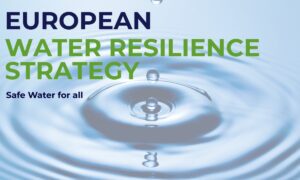Numerous ENVI members expressed their strong opposition to two proposals of the European Commission at the ENVI committee meeting of 12 September. The Commission proposal comprised of what maximum trace amounts of cyproconazole and spirodiclofen as well as benomyl, carbendazim and thiophanate‐methyl would be allowed in or on certain imported products. According to the committee, this could mean that a wide range of imported agricultural products ranging from citrus fruits to cereals, may contain traces of substances harmful to human health and environment.
The European Chemicals Agency (ECHA) classifies all the concerned chemicals genotoxic, reprotoxic and/or cancerogenic, as well as extremely toxic to aquatic life. MEPs from almost all parliamentary groups across the political spectrum opposed the proposal citing how allowing product containing trace amounts of them dose not only poses risks to citizens, but also creates unfair advantages against European farmers, which some MEPs called a double standard. Members were also confused with regards to the reasoning behind the proposal.
A Commission representative from the Directorate General from Health and Food safety was present at the committee meeting as well, who responded to the MEPs outcries. She highlighted that the proposals does not mean raising maximum residue levels, rather maintaining, or in certain cases, lowering them. She highlighted that the regulation is part of a gradual lowering of these levels and that, despite the ECHA evaluation, the European Food Safety Agency (EFSA) concluded that there is a threshold for safe consumer exposure. Lastly, she pointed out how the proposal also necessary to maintain international trade standards.
Despite the Commission’s response, the ENVI committee adopted the objection for the proposal with a vote.



